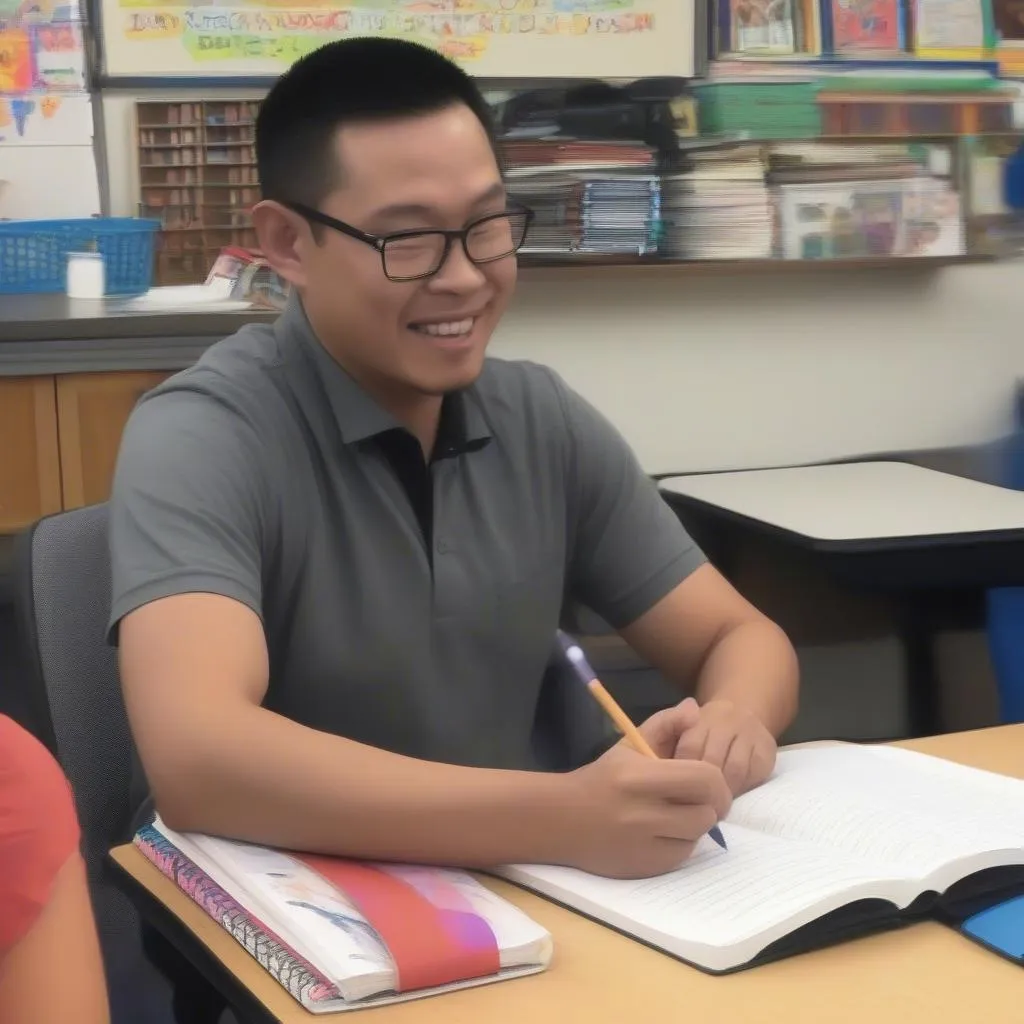“Learning literature is like learning to be human,” an old proverb affirms the important role of this subject in shaping human character. However, many young people are hesitant, even afraid, when it comes to studying Literature. So, what are the secrets to conquering this subject? Let’s explore!
1. Master the Foundational Knowledge
1.1. Understand the Basic Concepts
“To grow a straight tree, plant it straight,” to study Literature well, the first thing you need to do is master the basic knowledge. This includes:
- Understanding literary genres: From poetry, short stories, novels to drama, argumentative texts…
- Familiarizing yourself with modes of expression: Description, narration, emotion, argumentation…
- Mastering artistic elements: Rhetorical devices, word usage, sentence structure…
1.2. Practice Reading Comprehension Skills
“Reading a hundred pages is not as good as listening to a teacher’s lecture,” reading comprehension is a key skill in studying Literature.
- Read slowly and pay attention to every detail: To grasp the content, thoughts, and emotions of the author, you need to read carefully, not hastily.
- Analyze and summarize content: After reading, try to analyze the content, summarize the main ideas, and the highlights of the text.
- Practice solving exercises: Doing reading comprehension exercises will help you practice analytical skills and express opinions clearly and logically.
2. Develop Writing Skills
2.1. Practice Writing Regularly
“Practice makes perfect,” to write well, you need to practice regularly.
- Start with simple writing: Write a diary, write your feelings about an event, a person, a literary work…
- Study sample essays: Refer to good essays, analyze the use of words, sentences, and structure to learn from experience.
- Practice writing by topic: Try writing essays on familiar topics, such as: “My Family,” “Spring,” “Patriotism”…
2.2. Refine Expression Skills
“Speak well, think well,” writing is also an art of expression.
- Choose appropriate words: Use precise, vivid words that express your emotions and thoughts.
- Arrange sentences logically: Build coherent sentences to create a clear and logical flow of ideas.
- Focus on content: Clearly express your ideas, avoid being verbose or rambling.
3. Practice Grammar Skills
3.1. Master Grammar Rules
“When you eat fruit, remember the planter,” learning Literature also requires remembering grammar rules.
- Understand the types of words and phrases: Nouns, verbs, adjectives, pronouns, conjunctions…
- Practice spelling: Write words and punctuation marks accurately.
- Enrich vocabulary: Constantly expand your vocabulary, especially specialized terms and literary vocabulary.
3.2. Refine Grammar Analysis Skills
“Constant dripping wears away the stone,” to analyze grammar effectively, you need to practice this skill regularly.
- Analyze sentence structure: Identify subject, predicate, modifiers, word classes…
- Analyze rhetorical devices: State the effect of rhetorical devices in creating imagery and evoking emotions.
- Analyze semantics: Understand the meaning of each word and sentence in the text.
4. Connect Knowledge with Life
“Learning by doing,” to study Literature effectively, you need to connect knowledge with life.
- Read newspapers and magazines: Look for good articles and valuable literary works.
- Participate in cultural activities: Attend seminars, writing contests, and art performances.
- Observe and record interesting things around you: Everyday stories, social phenomena, life lessons…
5. Listen, Share, and Exchange Experiences
“Learning from friends is better than learning from a teacher,” listening, sharing, and exchanging experiences is an effective way to learn.
- Learn from teachers and friends: Refer to the learning methods and homework approaches of those who excel in Literature.
- Join forums and study groups: Exchange experiences, share difficulties, and helpful lessons.
- Listen and respect the opinions of others: Not only learn from others, but you also need to know how to listen and respect their opinions.
6. Cultivate a Love for the Subject
“Whatever you do, you need joy,” to study Literature well, you need to nurture a love for this subject.
- Learn about authors and works: Explore the life, career, and famous works of your favorite writers and poets.
- Participate in cultural activities: Participate in poetry readings, writing events, and creative writing contests.
- Feel the beauty of language: Contemplate and appreciate the beauty of Vietnamese language and literature.
7. Always Strive and Never Stop Effort
“Where there’s a will, there’s a way,” learning Literature requires perseverance and effort.
- Develop a reasonable study plan: Set goals and create a specific plan for studying.
- Practice regularly: Maintain a regular study habit, dedicating a certain amount of time each day to studying Literature.
- Maintain an optimistic and positive spirit: Do not be discouraged by difficulties, always maintain confidence in yourself.
8. The Story of a Girl Who Loves to Write Poetry
Many people would be surprised to know that a petite girl named Mai Anh has a passionate love for poetry. Mai Anh is always engrossed in reading poetry, her heart full of emotions, and creative inspiration always surging. Mai Anh often sits by the window, looking at the beautiful flowers and birds flying in the sky, her heart filled with beautiful verses.
Mai Anh always wants to express her soul through sweet poems. She started writing her first lines of poetry and was surprised when her feelings were entrusted to white sheets of paper.
 Young girl Mai Anh passionately writing poetry
Young girl Mai Anh passionately writing poetry
Little Mai Anh always tries to improve her poetry writing skills. She reads poems by many famous authors, studies rhetorical devices, and practices writing regularly. Gradually, Mai Anh’s poems became better, and the quality also improved.
9. Advice from Experts
“Learning Literature is a fascinating journey,” shared teacher Nguyen Van Minh – a renowned expert in teaching Literature. “Always maintain a love for this subject, strive to master basic knowledge, practice writing regularly, and constantly improve your skills.”
Mr. Minh also advises students to seek help from teachers and friends and always maintain a positive and optimistic spirit in the learning process.
 Teacher Nguyen Van Minh guiding students
Teacher Nguyen Van Minh guiding students
10. Summary
Studying Literature is not easy, but if you have perseverance, effort, and know how to study effectively, you can completely conquer this subject.
Always remember that Literature is not just a subject in school but also a door that opens up to you beneficial knowledge, spiritual values, and helps you become a more complete person.
You can refer to more related articles here:
- How to Study Literature Well in Grade 10
- How to Study Literature Well in Grade 9
- How to Study Literature Effectively
Please share this article if you find it helpful and feel free to leave a comment below if you have any questions. We are always ready to help you on your learning journey.